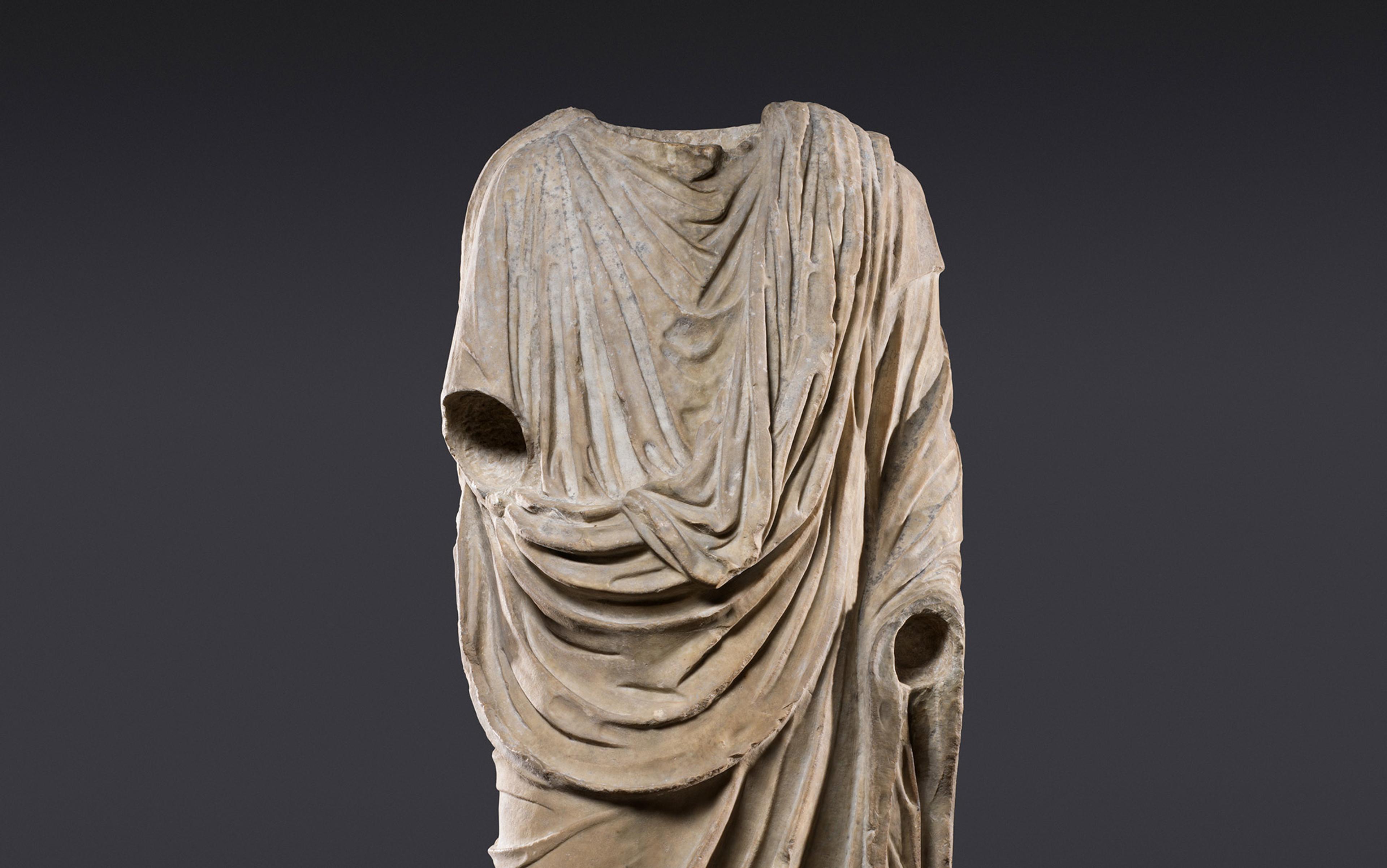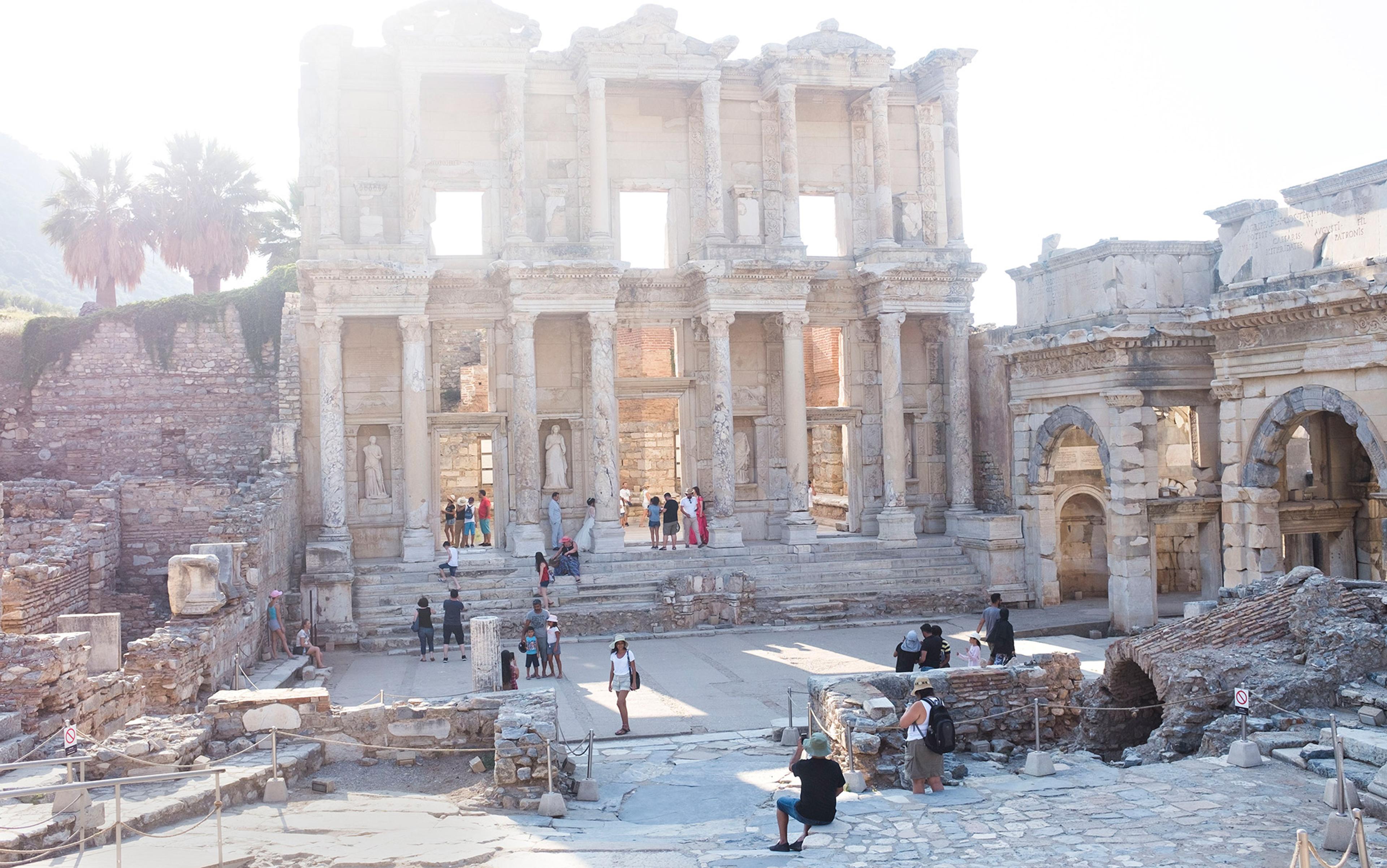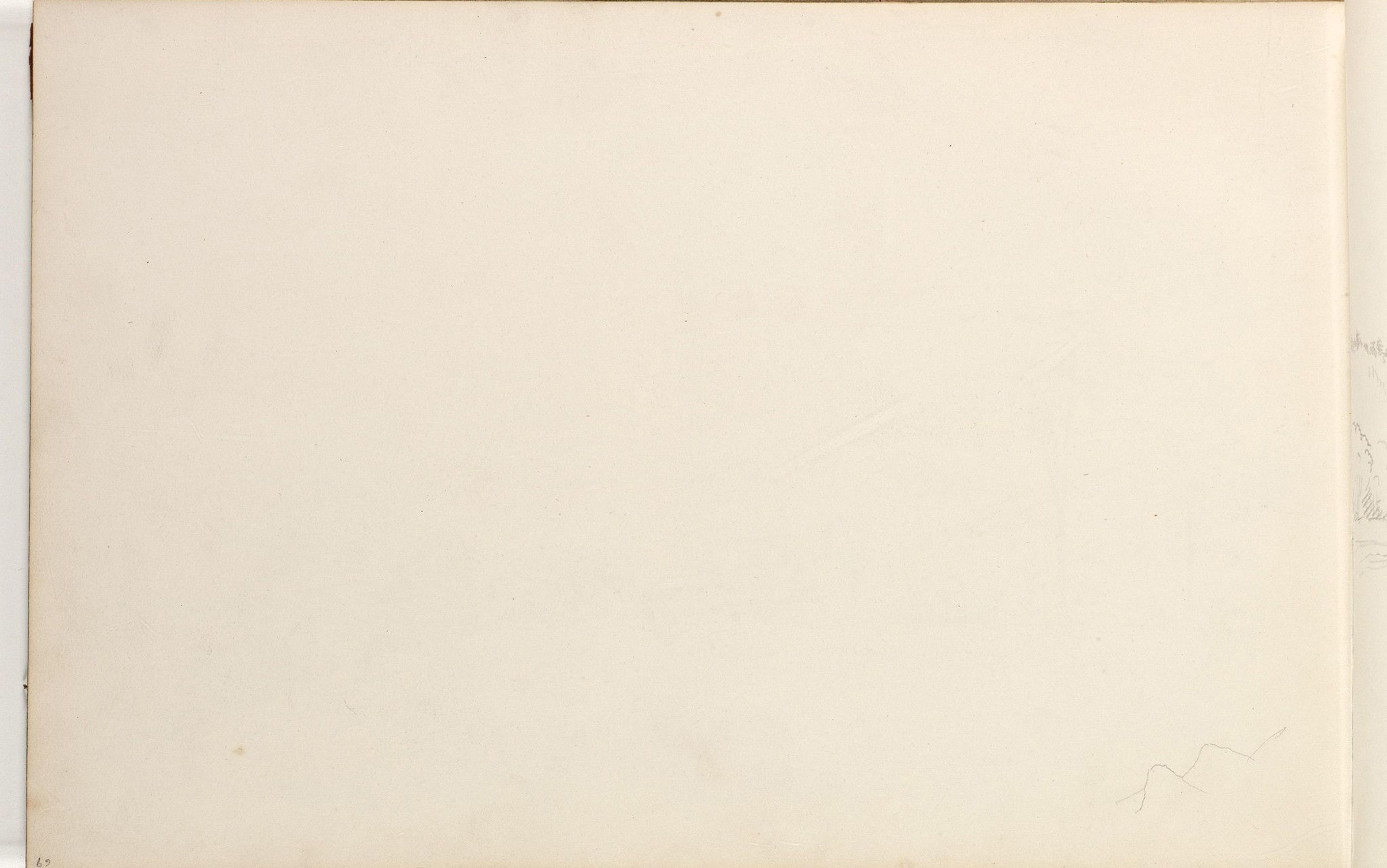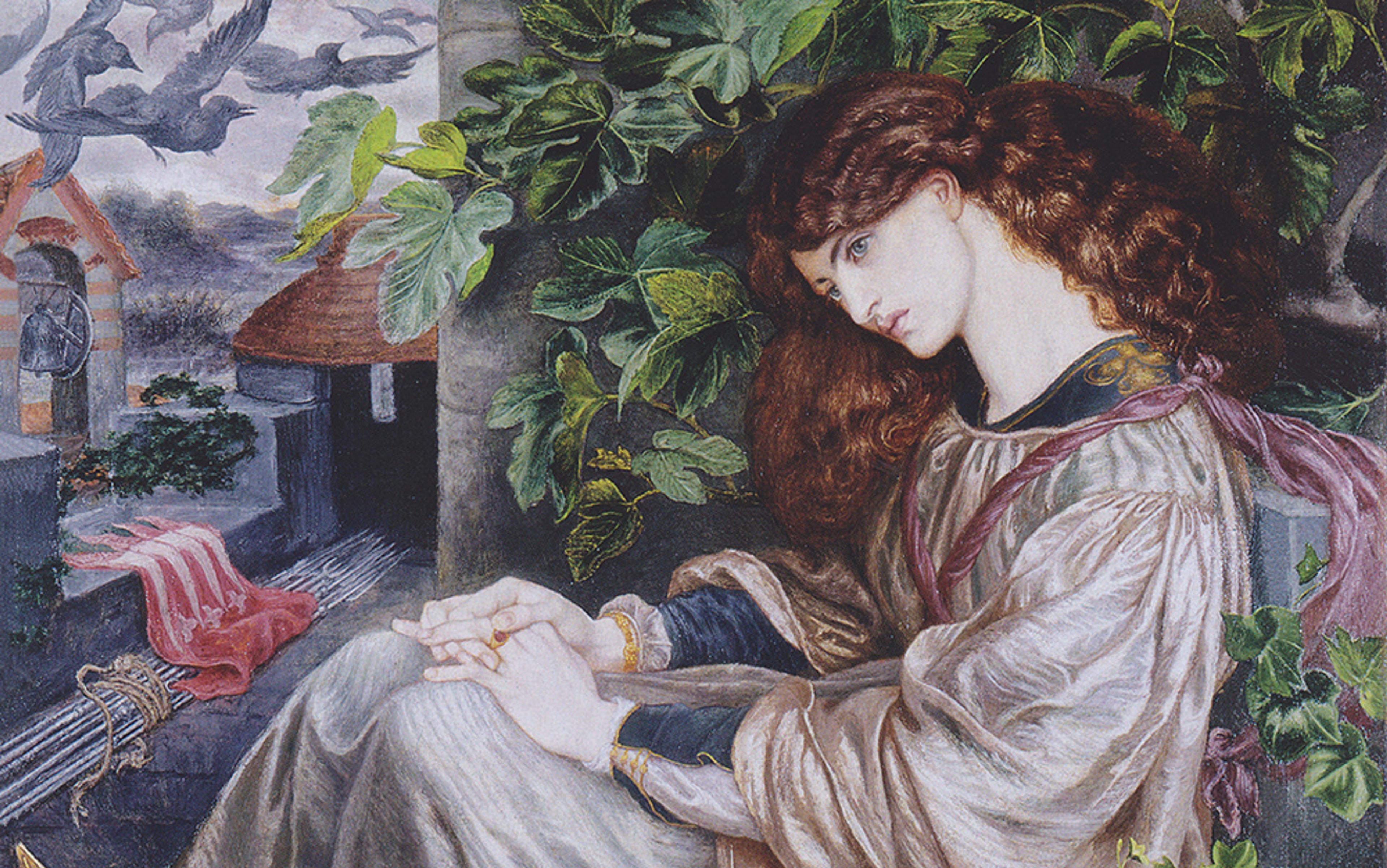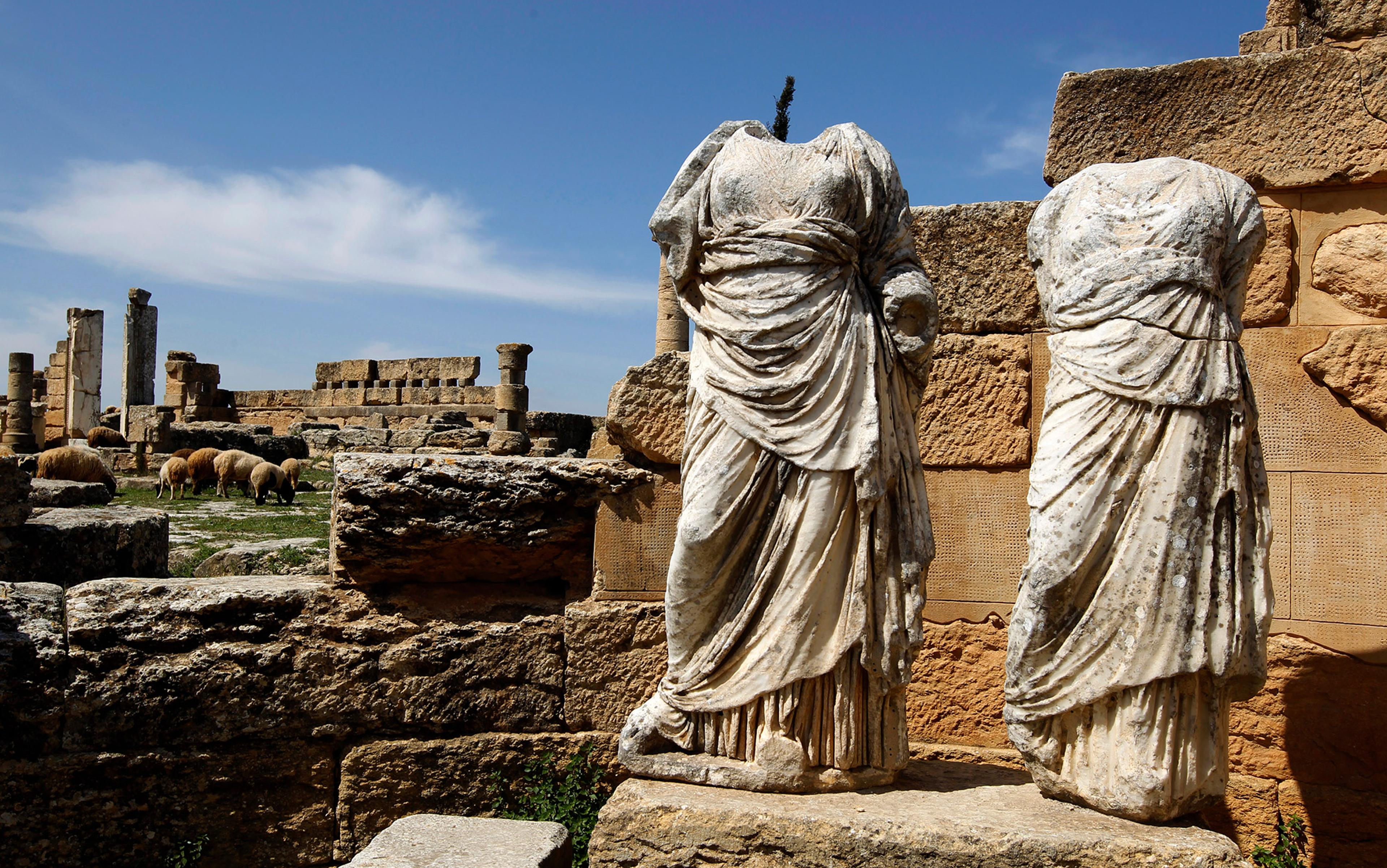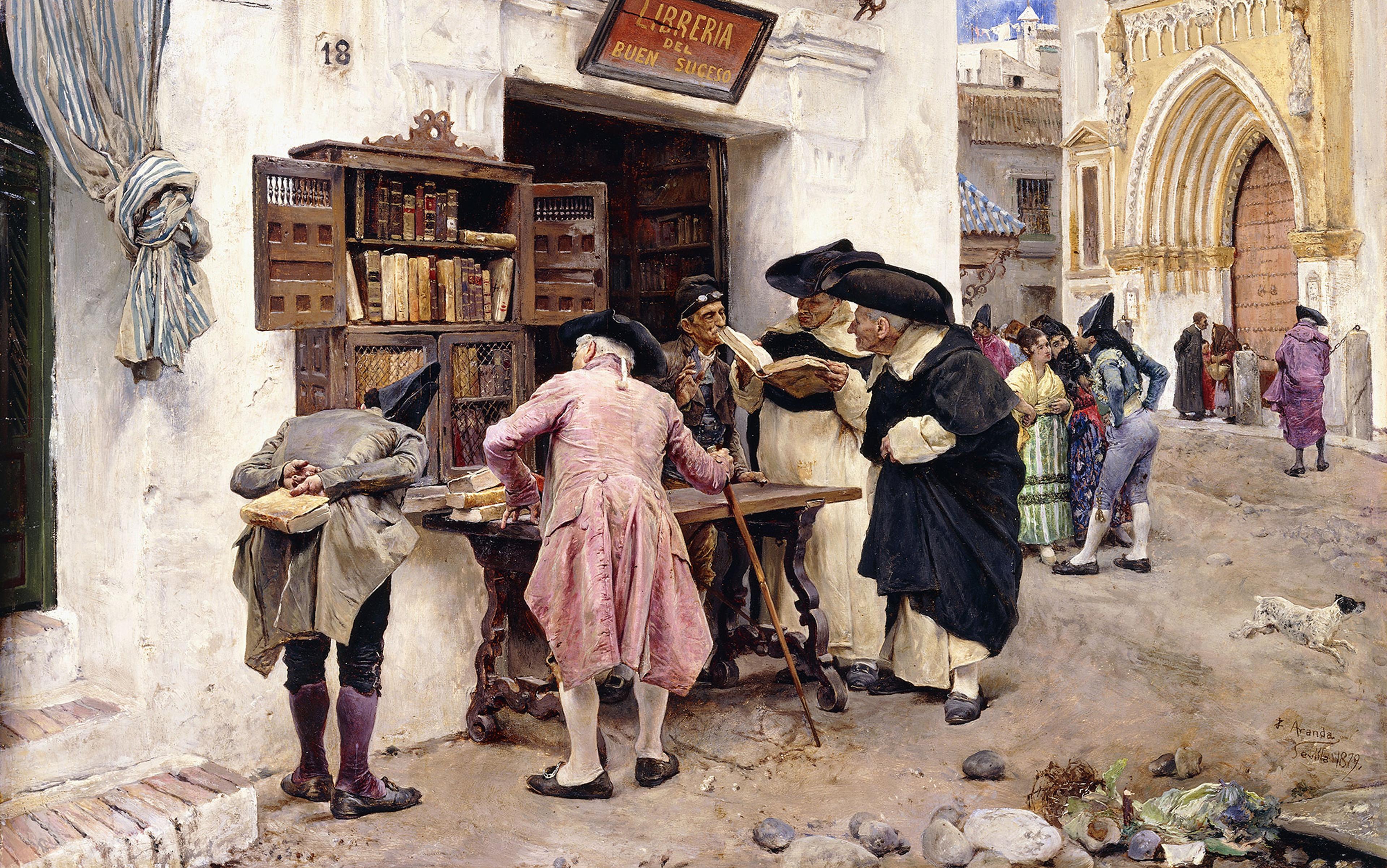Anonymous works of art and literature tend to rend and vex their audience. Debate still simmers over whether the UK street artist Banksy’s fugitive identity is a compelling act of cultural critique, or an annoying and cynical publicity stunt. The same goes for the elusive, self-created pseudonym of an Italian novelist, Elena Ferrante: is the ‘real’ Ferrante’s absence making an important feminist point about anonymous authorship, flipping a genuine middle finger to the publishing industry and the capitalist culture of self-promotion, or is it a glorified money-spinner, a bare strategy of generating interest and sales, a joke, as it were, on us? Because anonymous works leave a crucial gap as a placeholder for the author’s ‘rightful’ position, they open themselves to the wild and contradictory gamut of responses. They can also give rise to other electric acts of creativity, responses stretching from conspiracy theories, to informed speculation, to new ways of understanding authorship, to new works of art and criticism.
Anonymity achieves much more than this spur to creative response, or this spurt of audience engagement. Not knowing the author of a literary work does something powerful to the reader: it makes her experience the words as an exemplary, representative, far-reaching burst of culture, a spark of art that seems to transcend the limits of the singular intelligence. Ferrante, for example, has won glowing praise for representing the world of women, or female friendship, in general. The potential of the anonymous work is in its ability to throw the reader into the realm of apparent universality. The question, then, is whether a work of literature’s oomph is actually jeopardised or atrophied by the presence of the author. If they all left, would we miss authors after all? Or would their departure make their work stronger?
Ancient Rome is a prime setting for grasping the power of anonymity, for Romans of the Classical world often acknowledged its power negatively, adversely. Literature for the Romans was primarily the product of a singular intelligence, a coherent creative force, known by shorthand as an author. A literary text without authorship was often thought of as something dark, mysterious, lacking and disabled. In fact, a whole part-industry of scholarship sprouted up around securing attribution, making sure, that is, that the right texts had their proper authors, and that readers could know the worth of what they read.
When a Roman reader pictured the origins of a canonical work of literature, it was typically as the fruit of a real, flesh-and-blood, historical individual. This was reflected in the very way that libraries stored their goods: a ticket would hang off the end of the scroll marking the two most salient hashtags of identification: title of work and name of author. Even when there was no clear single point of origin for a work – eg, when the authorship was genuinely shared – Ancient readers invented one: it could never just be the Iliad or the Odyssey; it had to be the Iliad or Odyssey of Homer. There was little space in the culture of authorship for works whose author was properly unknown; and many modern readers have inherited these exclusionary tastes.
Still now, the value of a piece of literature seems pegged to the currency of the name it bears. It needn’t be this way. The anonymous literature of Ancient Rome is a species with its own special genius, its own idiomatic capabilities. When we recognise it as an incubation chamber for the power of anonymity, it shows us that literature can sometimes get on better without a Homer or equivalent to chaperone it into our consciousness. Names tame certain forces; anonymity unleashes them. That is, freedom from the author can generate new possibilities for literature, and new experiences of reading it.
What could anonymous words on a page do that authored words don’t? One way toward an answer is through a reading experience common to both us and the Romans: graffiti. Now, of course, graffiti is a different register of writing than high, published, consecrated literature. All the same, the chain reaction of thought it sets off in a reader can be useful for understanding anonymous works of creative literature too.
Imagine yourself stumbling across a big, raw line of political graffiti etched on a public wall, perhaps something like ‘Smash Capitalism Now!’ Part of the power and shock of the statement is that it hovers in the world of the unsigned, set free from the constraints and relativism of an individual subjectivity. If we knew the name of the single scribe calling upon us to smash capitalism this very minute, we wouldn’t take it as seriously. It wouldn’t siphon as much power, and we wouldn’t take it as a loaded act designed to make something happen for many through words. For the graffiti to strike the reader as a sign of revolution in the making depends on the fiction of its collective origins, or its possible unlimited appeal; that is, because it comes from anywhere and nowhere, the sentiment seems to swarm from everywhere. Whether you’re for or against this impending revolution, the graffiti carries a potent effect of universality; for a crowded second, you believe, and either you panic or you rejoice.
Proverbs also show the potential power of being unsigned, unhoused. These little snippets of wisdom derive their authority not from their individual crafters (if they could even be recovered) but from the fact that everyone has said them over and over again for a very long time. For Roman writers of the early empire, who prized the weaponising of rhetoric through short, sharp verbal formulations (known as sententiae), the truth of the proverb carried great purchase. It was a truth understood to come from anonymity as almost tantamount to cultural unanimity.
Humans constantly simplify the complexities of the world to the intelligent design of a few lucky proper names
Quintilian, a Roman teacher of rhetoric from the second half of the 1st century CE, writes about the authority of proverbs for use in legal rhetoric. He makes the point that even run-of-the-mill sayings and titbits of popular wisdom can have a big impact, precisely because they come across as the products of unbiased minds: ‘In some sense they’re testimonies, even more powerful because they’re not serving specific causes but spoken or created by minds free from resentment and favour – for the sole reason that they seemed the best or the truest things to say.’ They seal a nugget of hard truth, and can slip into the mainstream of the cultural commons, ‘because they have no known author’. In other words, they possess a different kind of authority than that of a statement with a big name attached. Proverbial words sans author pulse with their own magnetism of exemplarity. Some anonymous works of Roman literature are capable of the same.
Readers tend to be much more accommodating of anonymity in popular genres such as graffiti and proverbs than in high literature. It is generally OK for the ‘popular’ to come from everywhere and nowhere; however, when it comes to sublime poetry or an intricate novel, readers grow anxious to pin down and picture a source. It’s as if the degree of ‘authoredness’ of a piece of text swells in direct proportion to its place in the ranking system of literary prestige. Compare fan fiction or genre fiction (eg, the ‘cheap romance novel’) at one end – mostly anonymous, sometimes collectively authored, and correspondingly undervalued in the literary sphere – with James Joyce’s novel Ulysses (1922) at the other – single-authored, original, a work of ‘genius’.
This elevation of the author-as-person rings particularly true in a culture such as that of the modern capitalist West, which prizes bourgeois individualism so highly, tends to attribute everything of importance that happens on its watch to the super-agency of singular super-agents (eg, Donald Trump, say, or Elon Musk), and so naturally associates the value of its artistic products with their status as autonomous creations of an omnipotent and unique creator. Humans are constantly reducing and simplifying the complexities of the world to the intelligent design of a few lucky proper names. But the truth is, we might get on very well without these super-agent individuals. We might even understand the world better if we didn’t lean so heavily on them.
In Roman literature, my favourite example of an anonymous work that makes use of its anonymity to come across as an authoritative proverb writ large is a wonderful historical tragedy, the Octavia. It’s impossible to establish from today whether the play was originally released anonymously (although I have a strong hunch that it was, based on the play’s strange experimental style that tends to minimise the use of proper names), or whether it merely lost its author as a casualty of textual transmission later down the track. But this doesn’t really matter. Whether the author was absent from the off, or left later on, the effect of the play is amplified (rather than stunted) by anonymity.
The anti-anonymity biases of the Classical canon mean that it’s unlikely you’ll have ever heard of this strange piece of drama. The play is an anonymous masterpiece, and it is about the divorce and exile of Nero’s first wife, Octavia, set in 62 CE. It stages the domestic tension and revolutionary springback of absolute power spinning out of control, and it does so with more ambition and urgency than almost any other piece of drama to survive from Ancient Rome. There are a raft of memorable heroes and villains: Octavia the first wife, defiant in being so brutally discarded, the pitiable sacrificial victim of the bloodthirsty tyrant Nero; Nero as said tyrant, a maniacal Henry VIII steamrolling everything good and true to get his way, and crying ‘off-with-their-heads’ every which way; Seneca, Nero’s virtuous but completely ineffective right-hand adviser; the ghost of Agrippina, Nero’s murdered mother who acts as the tragedy’s revenge totem, cursing the son who had her clipped; a riled-up and revolutionary chorus of the Roman people, who act as partisans of Octavia, rioting and tearing down statues, a brute force that Nero revels in brutally repressing. The play is a serious and committed piece of political literature. It hits the jugular of imperial caprice and violence beautifully, even better than many more renowned works.
The Octavia travelled down to us from antiquity as part of the corpus of Seneca the younger (ie, the same Seneca as the character above). Seneca was the court philosopher of Nero, a Stoic thinker who left behind a two-pronged attack of literary output: on the one hand, philosophical essays and letters; on the other, tragedies on Greek mythological subjects broaching the big ethical and political questions of the day. The Octavia was lumped in with this latter group, the tragedies, because it has a lot in common with them, linguistically, thematically and dramatically. For example, the repellently tyrannical Nero of the Octavia shares a strong typology with the crazed power-addicts of Senecan tragedy such as King Atreus in the Thyestes, who serves his brother a nice main course of his own children. But there are several reasons ruling out Senecan authorship. Firstly, the improbability of having a play by an author which actually stages that author as a dramatis persona; secondly, there are certain moments in the drama that seem to foreshadow events that happened after Seneca’s death, and Seneca, for all his talent, was no clairvoyant; thirdly, the play’s linguistic style is also sui generis, compared with the rest of the Senecan corpus. So, if not Seneca, then who?
The logic of impersonality is similar to what we see in modern scientific discourse
Anonymous works tantalise their readers into asking the question ‘Whodunnit?’, but there are good reasons to resist this summons to detective work. In the Octavia’s case, we should take the proposition seriously that the work wants no author. Indeed, that it is much better off without one. What I mean by this is that the play has a few good reasons to duck and weave a single origin, to lie down and play anonymous instead. Let’s entertain these conspiracy theories briefly. The first reason could be political sensitivity, or the classic ‘anonymity as self-protection’ move. It’s likely that the play was published and performed at some point in the 20 or so years following Nero’s death. At this moment in history, Nero still had significant popularity and following, particularly among Rome’s lower classes, but also among certain factions of the elite. It took a while for belief in Nero’s monstrosity to catch on and calcify as consensus. Accordingly, it might have been dangerous at this point to attach your name to a play that so uncompromisingly slams Nero as pure evil. The high politics of the Roman empire was, after all, a labile, changeable landscape, where you never quite knew which of today’s heroes would wind up as tomorrow’s villains. This story, though plausible, takes the more conventional view of anonymity’s purpose and effect. It holds that keeping anonymous is a kind of dodge, or a prophylactic strategy: reactive, cautious and defensive. It could be. But there is also more to it.
Rather than this negative constellation of cause and effect for the Octavia’s anonymity, there is a more positive and ‘active’ possibility: that whoever wrote this play was shooting for the same hard-hitting realm of universality and ‘truth’ achieved by the proverb. Seneca and other major political figures around Nero were eventually nudged into suicide after falling foul of the emperor, and so their surviving faction of elite opposition would have reason to be hostile, would be wielding an axe to grind against Nero’s memory. If someone from that faction were out as the author of the Octavia, the risk would be that the play would seem more partial, blinkered and motivated by personal vendetta – not exactly ‘free from resentment and favour’, as per Quintilian’s ideal above.
But if the play were made to seem by no one? Readers or audience members might feel it as a more powerful and exemplary piece of political theatre; a play seriously attempting to express a collective view of ‘the Roman people’, even as it helps to script that view in the voicing. It would act on readers with a logic of impersonality similar to what we see in modern scientific discourse, whose truth value is boosted by the sense that there are no individuals interfering with the channelling of objective facts. The Octavia would be trying to amplify the memory of Nero as a monster; and its anonymity would help it migrate that sentiment beyond upper-class cut-and-thrust, would make it look like the spontaneous and ‘real’ eruption of words on a wall, or the consensus view that many mouths had helped to hammer into shape, a slogan for infinite circulation, eventual assent and final absorption into the common verdict of ‘cultural memory’. Certainly for us, just under 2,000 years on, the anonymity of the Octavia has the power to make fiction read like history.
The Octavia is just one example of how some special pieces of Roman literature directly mobilise their anonymity to grand effect. Rather than treating these works as somehow defective or deficient – crippled by the lack of identifiable hands behind them – I would say they should be handled as unique testaments to the power of literature to achieve dazzling pyrotechnics of ‘universality’, which are at once both real and illusory. Anonymity has its strange ways of convincing the reader to invest in the ‘truth’ of the words on the page. Literature without authors, in other words, conjures its own eerie source of authority. If we ignore that power of the unknown, we are missing something big. But we do not miss the author.
